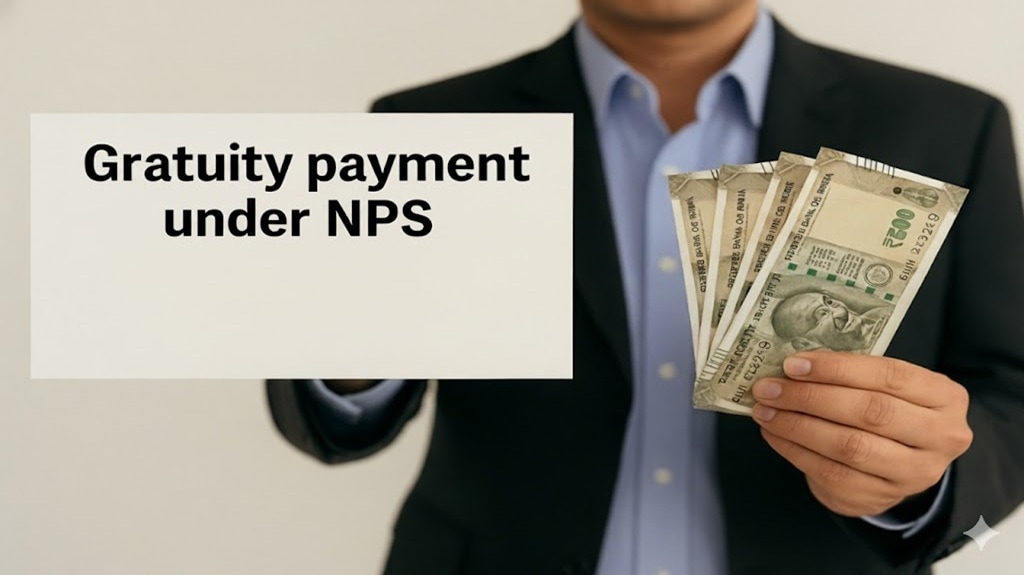Gratuity rules 2025: The Centre has come out with a clarification on the gratuity eligibility criteria for central government employees covered under the Central Civil Services (Payment of Gratuity under National Pension System) Rules, 2021.
The Department of Pension & Pensioners’ Welfare (DoP&PW) has said that it has been receiving “various references/RTI applications etc seeking information/clarification” regarding eligibility for payment of gratuity to the central government servant under the National Pension System on resignation.
Before we move further, let’s understand what retirement and death gratuity are how the amount is paid in case of voluntary retirement by central government employees.
What is retirement gratuity?
Retirement gratuity is paid to the retiring government servant. To be qualified for gratuity, a minimum of 5 years of qualifying service is required. Retirement gratuity is calculated as 1/4th of a month’s basic pay plus dearness allowance (DA) drawn on the date of retirement for each completed six-month period of qualifying service.
There is no minimum limit for the amount of gratuity. The retirement gratuity payable for qualifying service of 33 years or more is 16.5 times the basic pay plus DA, subject to a maximum of Rs 25 lakh.
What is death gratuity?
This is a one-time lump sum benefit payable to the nominee or family member of a government servant dying in harness. There is no stipulation about any minimum length of service rendered by the deceased employee.
If the employee dies during service, his family gets gratuity following this formula:
If less than 1 year of service, gratuity will be 2 times salary, if 1 to 5 years, 6 times salary, 5 to 11 years, 12 times salary, 11 to 20 years, 20 times salary, more than 20 years, and half salary every 6 months.
What is Rule 22 of the Central Civil Services (Payment of Gratuity)?
Rule 22 of the Central Civil Services (Payment of Gratuity under National Pension System) Rules, 2021, defines the rules for both retirement and death gratuity for central government employees. This rule establishes the eligibility criteria for employees under the NPS.
The following categories of central government staff are eligible for retirement and death gratuity under NPS:
(1) Central employees who retire or have retired in advance of the age of superannuation in accordance with rule 56 of the Fundamental Rules, 1922 or rule 12 of the Central Civil Services (Implementation of National Pension System) Rules, 2021.
(2) Employees on being declared surplus to the establishment in which they were serving, opts for Special Voluntary Retirement Scheme relating to the voluntary retirement of surplus employees.
(3) Those who have been permitted “to be absorbed in a service or post in or under a corporation or company wholly or substantially owned or controlled by the central government or a state government or in or under a body controlled or financed by the central government or a state government, shall, on his retirement, be granted retirement gratuity equal to one-fourth of his emoluments for each completed six monthly period of qualifying service, subject to a maximum of 16% times the emoluments”.
The government here made it clear that retirement gratuity after completing of 5 years of service is applicable only on retirement as detailed in Rule 22 above.
Rule 17: Forfeiture of service on resignation
Under Rule 17, when a government employee resigns from service, their past service stands forfeited — meaning it will not be counted for pension or gratuity benefits. However, there are exceptions.
If the resignation is given to take up another government job (temporary or permanent) with proper permission, the past service is protected and not forfeited. Similarly, if the resignation is submitted for the purpose mentioned under Rule 32 (i.e., absorption in a government-controlled body or corporation), the past service also remains protected.
Rule 32: Benefit on absorption in a government-controlled body
Rule 32 states that if a government employee is absorbed in a corporation, company, or body wholly or substantially owned or controlled by the central or state government, they are deemed to have retired from government service from the date of such absorption.
In such cases, the employee becomes eligible to receive retirement gratuity based on the length of qualifying service and the last drawn pay on the date of absorption.
In essence, Rule 17 and Rule 32 together clarify that while normal resignation leads to loss of past service benefits, there are specific exceptions. Technical resignation (to join another government post) or deemed retirement through absorption in a government-controlled organisation ensures that the employee’s past service remains intact. Only such cases qualify for retirement benefits like gratuity, as laid out under Rule 22.


